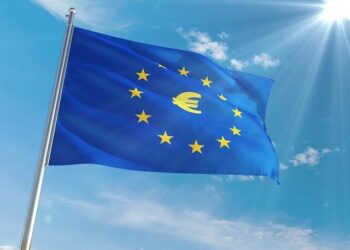Brussels – The European Council president has commended Montenegro’s recent progress toward European Union membership, highlighting the country’s ongoing reforms and commitment to EU standards. In a statement released Tuesday, the president emphasized the significance of Montenegro’s advancements as a positive example for the Western Balkans region, reaffirming the EU’s support for the nation’s integration ambitions. This endorsement marks a notable moment in Montenegro’s lengthy accession process and underscores the broader geopolitical importance of EU enlargement efforts.
European Council President Commends Montenegro’s Progress Toward EU Integration
The European Council President recently highlighted Montenegro’s steadfast commitment to meeting the stringent criteria required for EU membership. Acknowledging the country’s substantial reforms in governance, rule of law, and economic stabilization, the President emphasized the importance of continued dedication to transparency and the fight against corruption. These efforts have positioned Montenegro as a frontrunner in the Western Balkans’ accession process, reflecting promising momentum towards full integration into the European Union.
During the address, several key areas of progress were outlined, underscoring the challenges ahead as well as the successes achieved so far. These include:
- Enhanced judicial reforms ensuring independence and efficiency
- Strengthened anti-corruption frameworks and law enforcement collaboration
- Improved regulatory conditions attracting foreign investment
- Commitment to environmental standards aligned with EU policies
| Key Reform Area | Current Status | Next Steps |
|---|---|---|
| Judiciary | Progressing with new oversight bodies | Full implementation of anti-corruption measures |
| Economic Policy | Stabilized growth rates | Further regulatory alignment with EU directives |
| Environmental Compliance | Adoption of EU environmental laws | Enhanced monitoring and enforcement |
Detailed Analysis of Reforms Driving Montenegro Closer to Membership
Montenegro has accelerated its reform agenda with a series of targeted measures aimed at aligning its institutions and legal framework with EU standards. Among the most significant advancements are efforts to bolster the rule of law, enhance judicial independence, and crack down on corruption. These initiatives have been coupled with structural reforms in the public administration sector to increase transparency and efficiency, a crucial step toward fulfilling the EU’s accession criteria. The government’s commitment to these reforms has been recognized as a pivotal factor in improving Montenegro’s standing in the negotiation chapters with Brussels.
Key reform areas that have seen substantial progress include:
- Judicial System Overhaul: Comprehensive amendments to strengthen the autonomy and accountability of the judiciary.
- Anti-Corruption Measures: New legislation and enforcement bodies to reduce corruption at all levels of government.
- Economic Reforms: Efforts to enhance fiscal responsibility and attract foreign investment through market liberalization.
- Human Rights Protections: Improved safeguards for minority rights and increased media freedom.
| Reform Sector | Current Status | Expected EU Impact | ||||||||||||||||||||||||||
|---|---|---|---|---|---|---|---|---|---|---|---|---|---|---|---|---|---|---|---|---|---|---|---|---|---|---|---|---|
| Judicial Independence | Advanced legislative reforms | Enhanced trust in legal system | ||||||||||||||||||||||||||
| Anti-Corruption | New enforcement agencies operational | Reduced corruption perception | ||||||||||||||||||||||||||
| Reform Sector | Current Status | Expected EU Impact |
|---|---|---|
| Judicial Independence | Advanced legislative reforms | Enhanced trust in legal system |
| Anti-Corruption | New enforcement agencies operational | Reduced corruption perception |
| Economic Reforms | Progress in fiscal responsibility and liberalization | Increased foreign investment and economic stability |
| Human Rights Protections | Improved minority rights and media freedom | Alignment with EU human rights standards |
If you want, I can help further with analysis or provide a summary of Montenegro’s EU reform progress. Would you like that?
Recommendations for Sustaining Momentum on Montenegro’s EU Accession Path
To maintain the positive trajectory toward EU membership, Montenegro must prioritize strengthening judicial independence and enhancing the fight against corruption, which remain critical areas of concern within the negotiation framework. Advancing reforms in these fields will not only align the country with European standards but also foster greater public trust and investor confidence. Additionally, improving administrative capacities through targeted training and digitalization can streamline the accession process, ensuring transparency and efficiency in government operations.
Further, engaging civil society and promoting inclusive dialogue between government institutions and citizens will be essential to sustain momentum. Emphasis on environmental sustainability and regional cooperation should be incorporated as strategic pillars, complementing economic and legal reforms. The table below outlines key priority areas alongside recommended actions that Montenegro should continue to focus on:
| Priority Area | Recommended Actions |
|---|---|
| Judicial Reform | Enhance court independence; Improve case management systems |
| Anti-Corruption | Strengthen investigations; Increase transparency in public procurement |
| Administrative Efficiency | Invest in digital tools; Conduct staff capacity building |
| Civil Society Engagement | Support NGOs; Facilitate public consultations |
| Environmental Standards | Implement EU directives; Promote green energy projects |
| Regional Cooperation | Enhance cross-border initiatives; Foster political dialogue |
Wrapping Up
As Montenegro continues to make significant strides toward EU membership, the European Council president’s commendation underscores the country’s growing integration into European political and economic structures. While challenges remain, this positive trajectory reflects not only Montenegro’s commitment to reform but also the EU’s continued support for its Western Balkan partners. Observers will be watching closely as Montenegro advances further along the path toward full accession, signaling a potential shift in the region’s future within the European Union.















